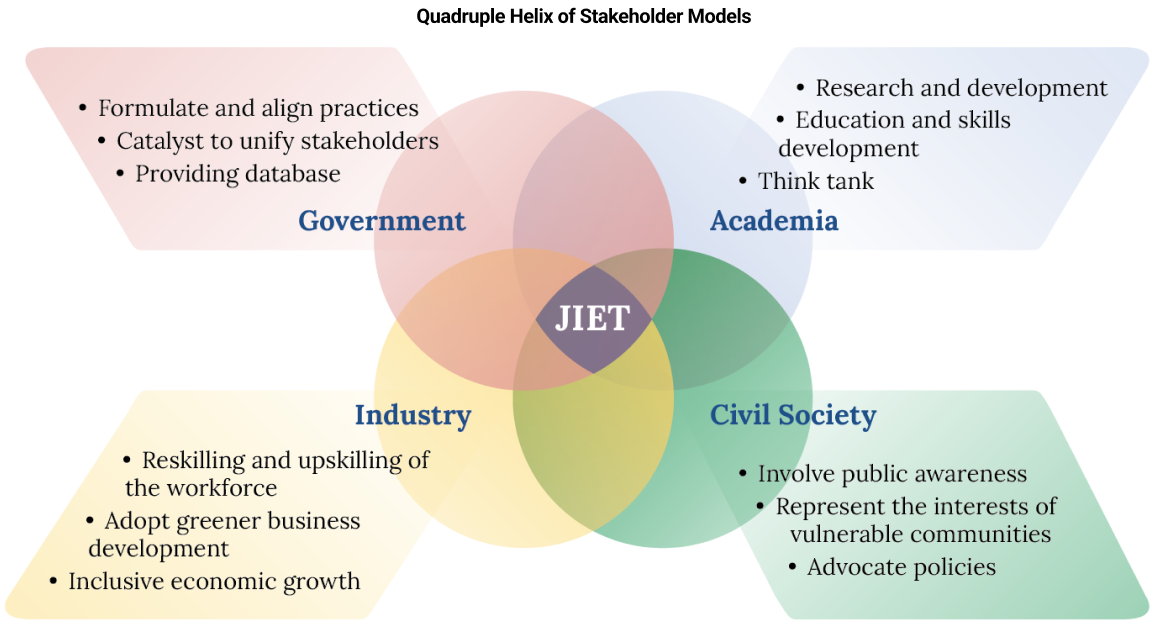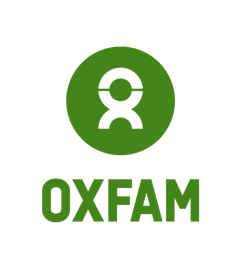
Paving the Way for a Just and Inclusive Energy Transition in ASEAN
What to know about people-centred ASEAN energy transition
Inclusive policy, inclusive process, inclusive governance
The complexities of a just and inclusive energy transition (JIET) implies that the success of an energy transition that leaves no one behind depends on the broader consensus of stakeholders to work collaboratively towards the shared goals. In this case, a participatory consultative approach and social dialogue mechanisms can serve as a facilitating tools in the policymaking process, which must be implemented at regional, national, and local levels.

As such, government’s role alone cannot bring JIET into reality. Instead of the conventional top-down decision-making, the JIET requires close involvement of diverse actors to enable bottom-up governance. There are at least four key stakeholders—referred as the Quadruple Helix—that would need to participate actively in the process of policymaking for JIET. Each of the stakeholder will contribute based on their expertise and capacity to ensure a holistic, representative, and data-driven energy transition policies.
Supported by Oxfam
Oxfam is a global movement fighting injustice for a more equal world. Oxfam works across regions in about 70 countries, with thousands of partners and allies, supporting communities in building better lives for themselves, growing resilience, and protecting lives and livelihoods in times of crisis.
There are some issues Oxfam’s works are focusing on: climate action, economic justice and equal rights, and women’s rights and gender justice. These issues carry what Oxfam’s believes in: equality. With the current global landscape, a just and energy transition covers the issues and belief of the movement. Whether that’s by closing the economic gap or creating jobs that pay liveable wages, a just energy transition can only be achieved if the most vulnerable communities face little negative impacts and do not bear the costs of climate action.
To support the just and inclusive energy transition, Oxfam has several related publications, such as Towards a Just Energy Transition: Implications for communities in lower- and middle-income countries and Towards a feminist just energy transition in Asia. Now, Oxfam and ACE joined hands in shaping a just and inclusive future for ASEAN’s energy transition.












